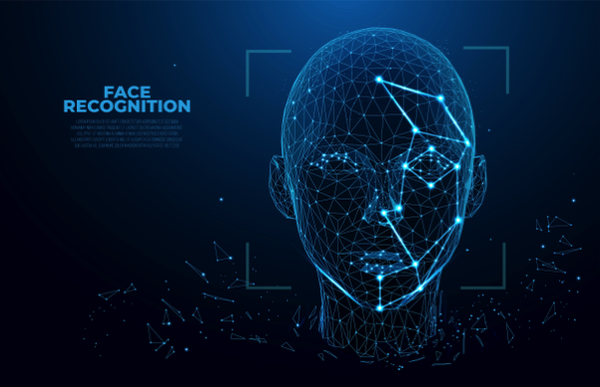Biometric surveillance quietly expands into U.S. sports venues
- The U.S. Open golf tournament and the NBA’s new Intuit Dome are implementing facial recognition technology for “frictionless” entry and fan personalization, normalizing surveillance in public leisure spaces.
- Critics warn that marketing these systems as conveniences conceals deeper issues, including diminished privacy, lack of informed consent and the quiet expansion of biometric surveillance in everyday life.
- Taylor Swift’s concerts and Madison Square Garden used facial recognition to track or ban individuals without their knowledge, raising ethical and legal red flags about discrimination, targeting and lack of transparency.
- The U.S. lacks a federal biometric data law. While some states like Illinois and California have protections, others, including New York, have inconsistent or limited regulations, leaving gaps in consumer protection.
- A June article by the New York State Bar Association urges lawmakers to address these issues, warning that unchecked deployment of facial recognition poses serious risks to civil liberties and privacy.
Biometric surveillance is no longer confined to airports, border checkpoints or high-security zones. Increasingly, it is being tested and normalized on fairways, courts and stadium concourses across the United States.
At this year’s U.S. Open in Oakmont, Pennsylvania, the United States Golf Association (USGA) has quietly expanded the use of facial recognition for event entry, once again partnering with British tech firm FortressGB and facial authentication company Wicket. Spectators now have the option to register their face ahead of time and glide through entry points without presenting a physical ticket for a “frictionless” experience.
However, critics warned that this framing, selling biometric scanning as a mere convenience, masks a more complex and unsettling shift: the normalization of facial surveillance in public leisure spaces, where expectations of anonymity and privacy have traditionally been higher.
The golf tournament isn’t alone in its embrace of this trend. On the other side of the country, the National Basketball Association’s (NBA’s) Los Angeles Clippers are preparing to open the doors of their futuristic new home, the Intuit Dome, with a more comprehensive data-driven approach.
Managed by Halo Sports and Entertainment, a company owned by former Microsoft CEO and Clippers chairman Steve Ballmer, the venue doesn’t just scan faces for entry. It tracks sound levels at individual seats to reward enthusiastic fans, uses facial recognition to personalize welcome screens and continuously gathers behavioral data under the promise of enhancing the fan experience.
Both cases reflect a growing pattern in American sports: venues are becoming testbeds for cutting-edge surveillance technologies, all under the guise of improving speed, security and personalization. Yet as these systems become more embedded, the long-term consequences, especially related to data privacy and civil liberties, remain unresolved.
NYSBA warns the public about facial recognition’s lack of regulation
An article published by the New York State Bar Association (NYSBA) this June warned the public about the growing use of facial recognition technology at entertainment venues.
This piece, written by Kylie Ruff, a 2025 graduate from St. John’s University School of Law, explores how venues across the country are increasingly turning to facial recognition to streamline security and entry. However, he argued that it raises deep questions about privacy, fairness and the balance between safety and surveillance.
For instance, in 2019, pop star Taylor Swift’s security team used facial scanning kiosks at her concert venues to track known stalkers – a move that sparked alarm when it was revealed that the scans had been conducted without fans’ knowledge or consent.
Recently, Madison Square Garden (MSG) Entertainment faced backlash for using facial recognition to ban lawyers from firms engaged in litigation against the company. One mother was barred from seeing the Rockettes with her daughter solely because she worked at a law firm that had a pending case with MSG. None of these exclusions stemmed from criminal history, only affiliations and criticisms.
These practices, Ruff suggested, tread dangerously close to weaponizing surveillance tools for personal or corporate retaliation, without meaningful oversight or accountability. (Related: Malfunctioning facial recognition technology may put innocent individuals at risk.)
Moreover, the U.S. has no comprehensive regulation governing the collection, storage or use of biometric data, including facial recognition scans. Only a handful of states, including Illinois and California, have enacted laws requiring businesses to either obtain consent or offer opt-out mechanisms. While New York City has rules requiring biometric disclosure in commercial settings, the state lacks a uniform approach.
FutureTech.news has more stories on the dystopian measures of governments to surveil citizens.
Watch the video below that talks about government agencies that were caught lying about the facial recognition program.
This video is from MyPodcastDropped2320 channel on Brighteon.com.
More related stories:
Irish government to legalize retrospective facial recognition technology.
Russia to launch nationwide facial recognition payment system this year.
Mastercard rolls out payment system that uses FACIAL RECOGNITION technology.
Half of America already in law enforcement’s facial recognition network.
U.K.’s Crime and Policing Bill 2025 reignites facial recognition controversy.
Sources include:
ReclaimtheNet.org
BiometricUpdate.com
NYSBA.org
Brighteon.com
Read full article here


